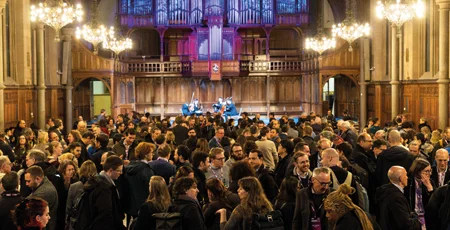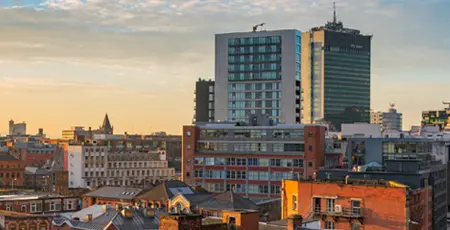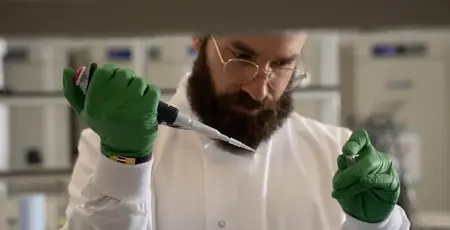Sustainable thinking
We welcome our first cohort of students on the newly launched MSc in Sustainable Business.
Programme Directors Andy McMeekin and Sally Gee explain the rationale for the course.
When we launched our new MSc in Sustainable Business in September 2024 we were apprehensive for at least two reasons.
First, despite a careful recruitment process that selected 23 students we did not really know what type of student we would be teaching. Why did they want to come? What did they already know and what did they want to learn? And what sorts of jobs were they hoping to secure after graduating?
Second, we didn't want to simply 're-purpose' existing courses so decided to create an entirely new curriculum from scratch; one that embedded sustainability rather than providing a bolt on, and which could showcase the latest research and thinking from across AMBS.
While designing the course we also worked with learning designers to incorporate a range of innovations in how we teach. This included a simulation game for decision making in value chains, and a range of novel assignments including blogs and video 'pitches' designed to foster critical and creative thinking.
We also spoke to sustainability professionals to understand the skills, knowledge and behaviours required to bring a about major system change.
Diverse motivations
Any concerns we had were quickly calmed when we met the students during welcome week. We got to know them over the subsequent weeks of teaching, discovering more about their diverse motivations and expectations.
Some students told us they wanted to complement their business expertise by up-skilling in sustainability to either develop their existing careers or move into new ones.
Others said that they wanted to complement their scientific knowledge with a business perspective. However, all the students were highly motivated to develop sustainable business expertise and make a positive contribution to a sustainable future.
Real world problems
We designed the new MSc to be challenging. Academically rigorous, connected to real world problems, and aiming to empower students to confront orthodox thinking and develop the leadership skills and actionable knowledge to become change agents.
Despite coming from diverse cultures, and with different educational and professional backgrounds, we have taken much pleasure in seeing the students rise to the challenge.
In fact, the diversity of backgrounds has proven to be one of the main drivers of a highly interactive and participatory learning environment—with students joining us from the UK and Europe, North and South America, South Africa, Southeast Asia and beyond.
Their educational backgrounds ranged from engineering, environmental management, finance and business, to English, psychology and gender studies. The students' professional experience was equally diverse including finance, tech, corporate planning, international relations and urban planning.
Students told us that they valued feeling part of a diverse and tight knit community, and this melting pot of different experiences and perspectives has created opportunities for highly productive discussion and debate.
Walk the talk
Another thing we have benefitted from—and something we perhaps did not fully anticipate—is the extent to which the students have embraced our own efforts to 'walk the talk' and bring sustainability-oriented innovation into the business school teaching environment.
Indeed, students have acted as ambassadors for the programme in their own networks. They have enthusiastically engaged with us on what works well with the programme and what could be improved or added.
With the classroom teaching component of the programme now finished, students move forward to their final and most substantial piece of work, the sustainable business research project. This is where they combine their learning from the programme to devise and execute a piece of research.
While some students are pursuing a conventional academic dissertation, others are taking advantage of different approaches that we have experimented with.
For instance, several students are developing projects in response to briefs held at The University of Manchester University Living Lab. And two groups are working on project briefs that have been prepared by the Co-op, who joined us from their headquarters in Manchester to share their thinking earlier this year.
Overall, it has been a great launch year and a huge pleasure to get to know our students. We have also learned a lot, which will help us develop the programme further. We're are hugely grateful to our inaugural cohort for their enthusiasm, passion for the subject and amazing level of engagement.
MSc Sustainable Business
Develop a sustainability mindset, learn how to challenge orthodox thinking and make the world better,







